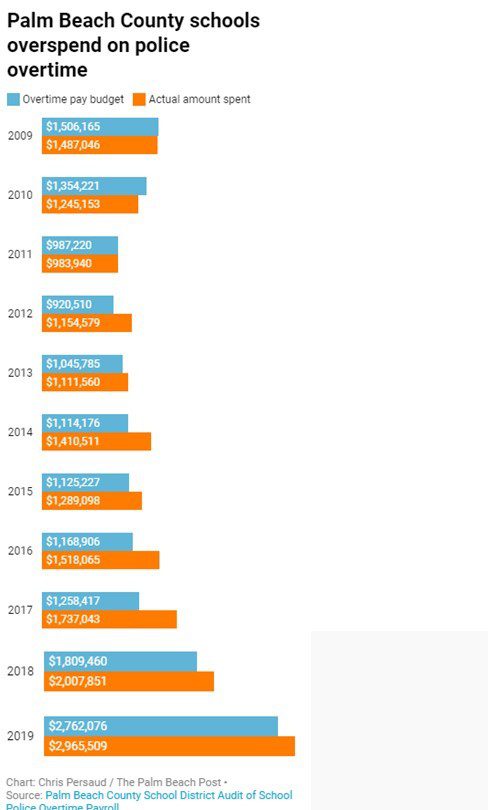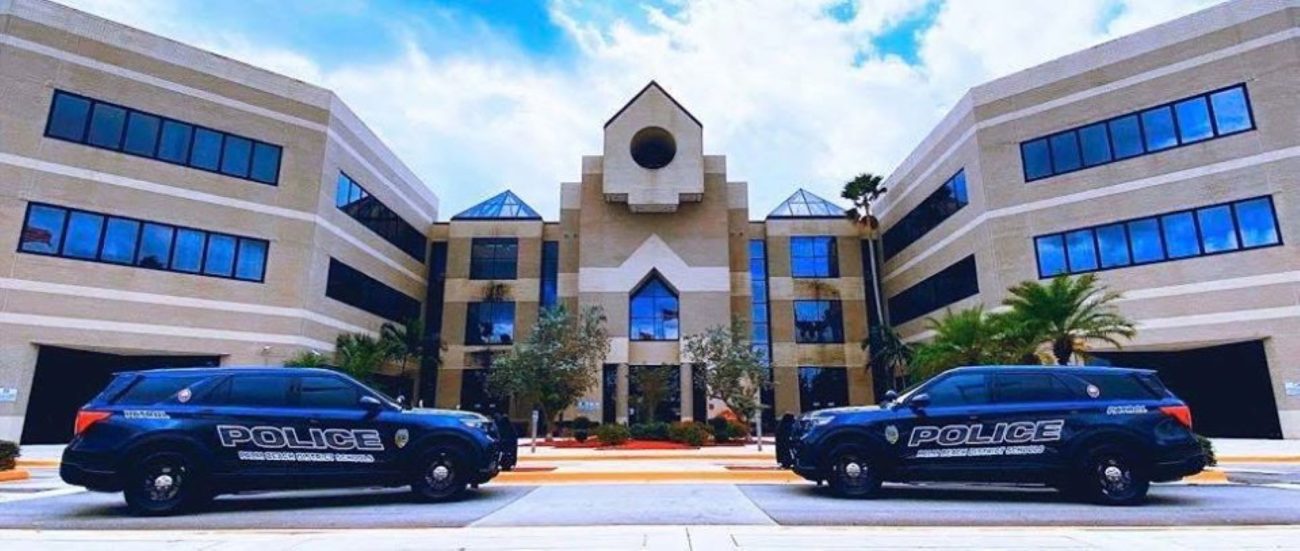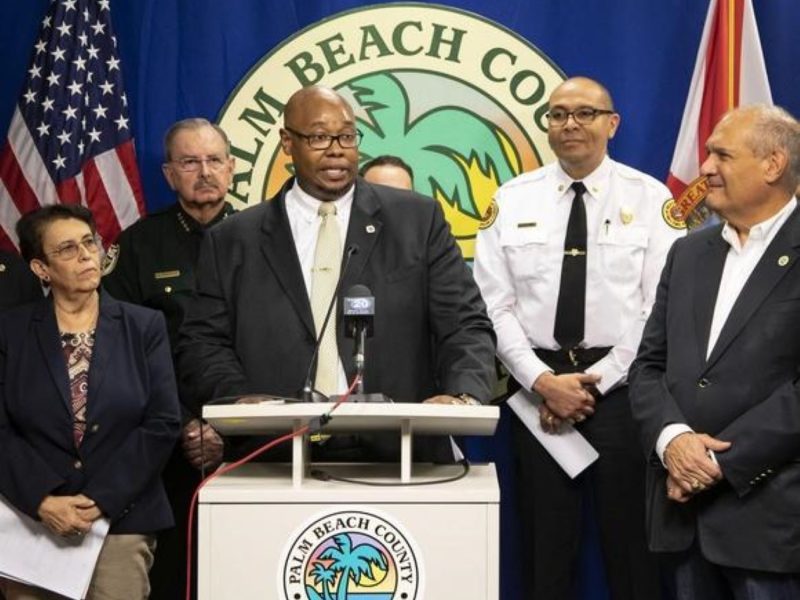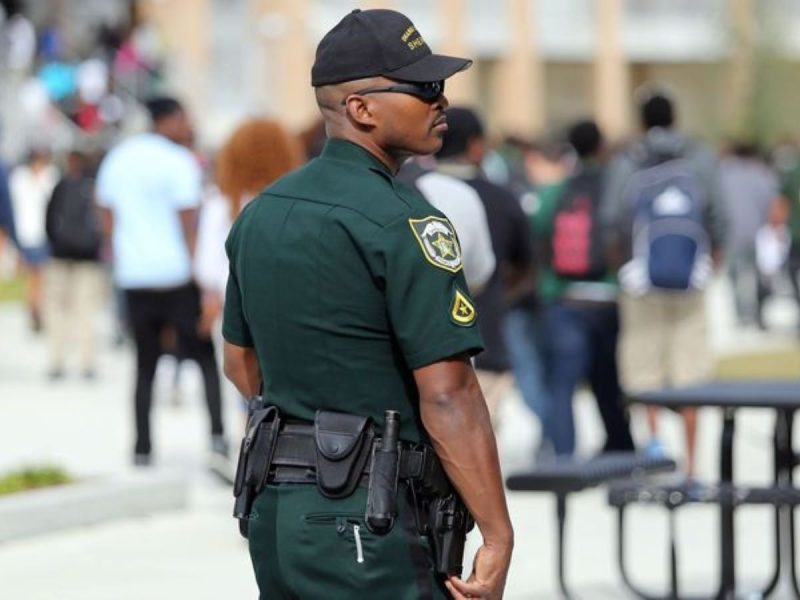Audit: PBC school police OT grew unchecked to $2.9M
The Palm Beach Post | by Sonja Isger | July 3, 2020
With a budget of at least $1 million set aside annually for overtime, the Palm Beach County school police department has burned through that money and then some every year for the past eight — even when the budget grew by hundreds of thousands of dollars.
At one point, the police chief at the time did an endrun of the officers’ union contract, paying them overtime rather than the negotiated $35 flat rate, costing the district an extra $120,000 in the span of 16 months.
Oversight of who was getting the money was lax, forms requiring a supervisor’s permission were ignored, supporting documents missing.
In one year, 54 of the department’s 264 employees – both sworn officers and civilians – earned an extra third of their annual salary in overtime. Twenty of them saw overtime payouts equal to half their salaries. One in three earned between $20,000 and $42,700 in overtime pay.
These concerns were laid bare by the district’s inspector general last month in an audit requested by Schools Police Chief Frank Kitzerow. The chief sought the review after he “discovered several troubling practices,” the report says.

The audit did not reveal any unusual trends or inappropriate activities when it came to general payroll controls. As for the overtime, auditors concluded, “while overtime appeared to be justified,” no one in management was regularly monitoring it, and, therefore, weren’t looking for ways to rein in costs.
Kitzerow became schools chief in the summer of 2018.
Formerly chief of Jupiter’s police department, the district hired Kitzerow to manage a department destined to more than double in size in the wake of the Parkland school shooting and the resulting Marjory Stoneman Douglas Act that required an armed officer on every campus.
No doubt, the hiring frenzy that followed is largely responsible for school police overtime costs that reached $2.9 million in the 2019 budget year. But overtime has been on an upward trajectory since 2013 when the roughly $1.5 million budget was exceeded by nearly $66,000, according to the audit.
Kitzerow did not reply to requests for comment delivered both by email and voice message to his office in recent weeks.
Of the 264 school police department employees, 252, can earn overtime, according to the audit. Those who can’t are senior officers including the chief, captains and majors.
According to the IG’s written report, the department managers did not contest any of the findings. They report that changes have been made to improve oversight and rectify improper practices.
For school police officers, overtime comes into play when they are called to work during hurricanes, required in court or at depositions, when they are called back after the end of shift – for example, an alarm going off at night on a school campus – and for training.
Chief Financial Officer Mike Burke noted that unlike other school employees, police officers can’t always predict when they’ll be called in for additional hours.
And some events that drove up costs districtwide were out of the department’s control, Burke said in a recent interview.
Marjory Stoneman Douglas Act demanded that the department grow by more than 150 officers.
From the 2014 school year through the summer of 2018, the number of campus-based officers and police aides in the budget hovered from 136 to 141 – though some positions went empty at any given time. After the Parkland shooting, the budget grew to 290 school-based employees. Giving the department more people who could be called to overtime duties.
A post-Parkland shooting at a Palm Beach Central High football game in Aug. 2018, further ramped up the overtime landscape, Burke said.
Prior to the Central High incident, schools staffed athletic events as they deemed necessary and paid for police coverage out of their ticket sales. Overnight, district administrators saw the need to impose standardized security measures across the county and took over the staffing decisions and the costs, Burke said.
The district implemented bag checks, hired security, driving security costs at sporting events to about $600,000, much of it going back to police overtime, Burke said.
Additional security needs surfaced as well.
“Stoneman Douglas started it. All of a sudden, every elementary school parent night, you have an officer there. You may not have before,” Burke said.
Palm Beach County is among a handful of school districts to staff its own police department, one that for decades has operated with sworn, armed officers just as many city departments.
For eight of the last 10 years, and prior to the Parkland shooting, the money spent on overtime has ranged from $984,000 to $1.7 million – exceeding its budget in all but those first three years of that decade. In some years, the spending has eclipsed the budget by as much as 38 percent, even as the budget itself grew.
In 2017, one added expense came at the direction of then-Chief Lawrence Leon, who implemented a new overtime pay guideline that paid officers overtime for working on non-contract days instead of the $35 per hour agreed to by union contract. Months after Kitzerow became chief, that practice ended. An analysis by the inspector general’s office estimated the payout difference over 16 months was roughly $120,000.
Vacant positions in the department’s emergency dispatch office also contributed to “significant overtime” for a group of employees, according to the audit.
“School Police has repeatedly attempted to fill critical civilian positions to no avail,” managers responded in the audit. They said they are turned down because the salaries aren’t competitive, the report said.
Kitzerow said in his written response to the audit that the nature of policing makes it impossible to predict the frequency and duration of overtime needs; calls for help and crime scenes don’t fit neatly into a school day. And “After-hour employee call-out activity does not lend itself to multiple levels of (prior) approval.”
But he also said the department is now better positioned to “greatly improve the monitoring and control of overtime” with the purchase of new software. The department is working with purchasing and accounting to select a vendor now. Kitzerow also said training is in the works to review the School Board’s payroll requirements and overtime guidelines.





